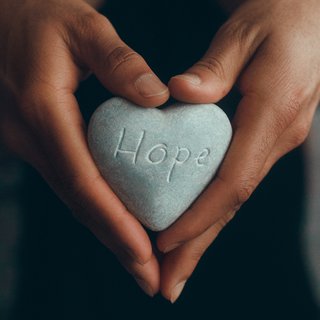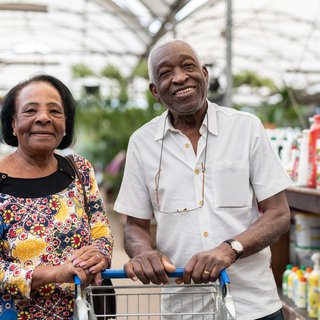“He was gone, and it was the most peaceful moment”
When Steve was diagnosed with a rare type of blood cancer, Kirsten was right there beside him. Despite the highs and lows of Steve’s treatment, they faced it together – right up until the moment when she felt his heart stop.
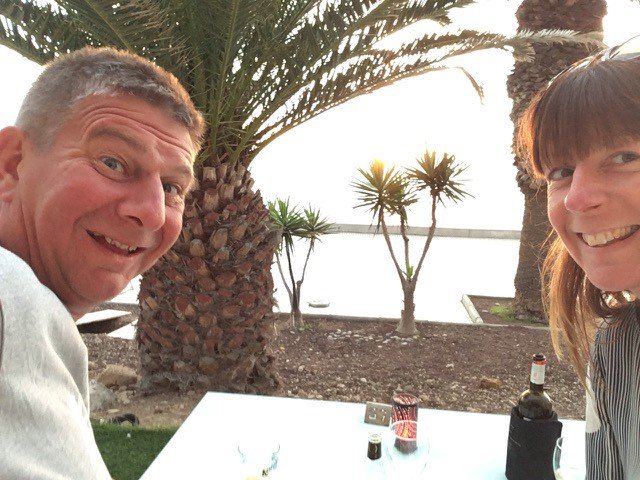
Please read on only if you wish to know about someone's experience of loss. Remember that no two people are the same, even if they have the same diagnosis. Everyone has a different story.
Back in July 2018, my partner, Steve, was diagnosed with a myeloproliferative neoplasm (MPN). We were told by his haematologist, the brilliant ‘Dr A’, that MPN is a rare blood cancer. Trust Steve to get something that most people have never heard of. There are three classic types of MPN, but Steve didn’t fit directly into any of them.
We were in complete shock. Our lives changed forever in that consultation room.
Steve was put on 'watch and wait' with regular tests to keep an eye on his white blood cell count. Unfortunately, his specific MPN had a poor prognosis – there was near certainty that the disease would progress at some point.
Each night before his blood tests, Steve couldn't eat or sleep, and we were both extremely anxious. Waiting for the results was like going to hell and back.
Fast forward to November 2018
Steve was put on hydroxycarbamide, a chemotherapy drug. We were told that the best treatment would be a bone marrow transplant, but that there was a high chance of the disease returning post-transplant.
Steve was adamant he didn’t want to go through with the transplant when the odds were so stacked against him.
I was angry, but then I reconciled my feelings. It was Steve's decision and his alone.
In March 2019, hydroxycarbamide seemed to be doing the trick. It felt like we could kick the disease into the long grass and begin to feel positive.
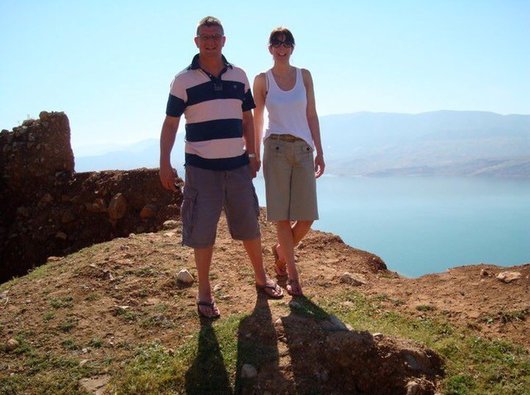
But in November 2019, things changed
Steve was losing weight and he became tired and weak quite quickly. His eyesight seemed to deteriorate, and the disease started to attack his skin. At his consultation almost a month later, we found out that Steve's white blood cell count was rising. This prompted a bone marrow biopsy the following day.
The results weren't good. I remember that appointment as if it were yesterday.
Steve could barely walk. Dr A wanted to admit him straight away and start a course of FLAG-Ida chemotherapy treatment with a view to progressing to a transplant.
Steve asked, "What if I don't want treatment?" The answer: "Well Steve, you probably won't survive longer than a couple of weeks.”
I felt like someone had punched me in the face. I knew he was poorly but didn’t expect that.
Treatment or no treatment?
Unfortunately, there wasn't a bed, so we returned home to consider the two options: treatment or no treatment. Steve said: "Shall we just get a load of food and booze in and have a massive party with all our friends and family?"
I wanted Steve to fight, but it was his decision. I was relieved when he finally agreed to the treatment. Following the first round of FLAG-Ida chemo and a nine-week stay in hospital, Steve came home and it seemed like he was doing really well.
The second round went as well as the first. He wasn't sick, but he hated losing his taste and had really bad mouth ulcers at one point. Then, the coronavirus pandemic hit.
For the first four weeks of his treatment, I could stay with Steve in his room. Then, I had to meet him in the hospital car park.
Back home
In mid-April, he came home, but almost immediately got a cough. In the second stage of chemo, Steve was much weaker and more lethargic. His weekly transfusions weren’t working like they used to. He couldn’t put on weight, and he became breathless very quickly.
Something wasn't right, and Steve was soon admitted to hospital. That day, he called and told me that Dr A wanted to talk to me. I knew what he was going to say… the treatment hadn’t worked.
He was given a few weeks to live…
Steve was extremely calm, but we cried when we got home. I told him how brave he was and that I loved him for trying to beat the disease and giving treatment a go. He told me he was glad he had. Steve remained composed and we spent quality time with as many people as we could.
We ate and drank his favourite things. We laughed, cried, smiled and screamed, while reminiscing about the good times.
On Monday 1st June, Steve was admitted to hospital with pneumonia. Dr A rang me shortly afterwards and told me that Steve would not be coming home. He was professional yet compassionate, and I could tell that he was sad too.
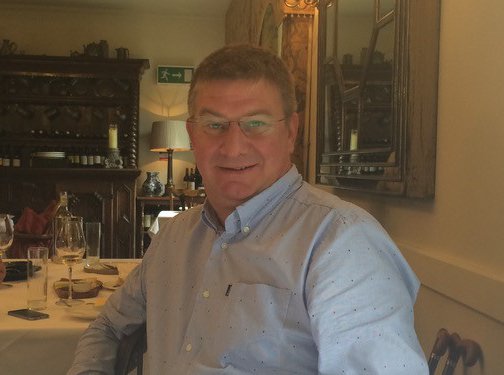
In Steve’s final few days, he struggled to breathe. He was heavily sedated and essentially asleep. I didn't leave his side. I held his hand and told him how brave he was and how much I loved him.
I'm certain he heard me because his fingers would flex around my hand.
Three days later, Steve's breathing was slower and more relaxed. At around 9.55pm, I told Steve that I was nipping to the toilet, and told him to hang on a sec. Two minutes later, I returned, holding his hand and telling him I loved him. I placed my other hand on his chest, and 30 seconds later, I felt his heart stop. He was gone and it was the most peaceful moment I could have ever wished for.
No more pain. No more hospitals. No more cancer.
The kindness and humanity from the nurses was overwhelming, and he received exceptional care.
I want to wish everyone facing blood cancer all the very best. You're all super brave and stronger than you know. I realise our story didn't have a happy ending, but lots of others do. With the research and work that Blood Cancer UK are doing, I'm certain there will be a day when every blood cancer story has a happy ending.
If you have any questions or worries about blood cancer - whether it's because you're living with blood cancer or are supporting someone who does, our free and confidential Support Services Team is here for you.

